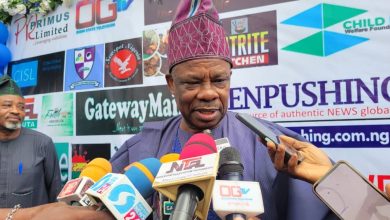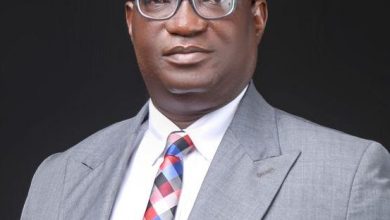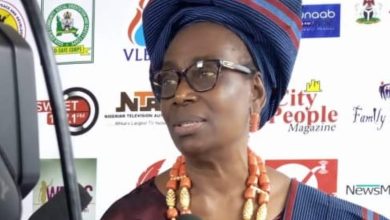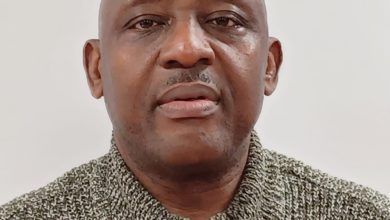For the records: Communique by The Think Tank on Nigeria on subject ‘Means of funding the Nigerian economy
The “Think Tank On Nigeria (TTON)” organization is a policy advocacy platform with over 250 members of various professions drawn from the different geo-political zones of Nigeria. We discuss and analyse Nigerian policies and politics, with the aim of proffering solutions to developmental challenges the country might be faced with. Rich contributions are made by experts in different fields, which could be converted to veritable actions if adopted, in order to bring needed positive changes.
The Economy of Nigeria is a middle-income, mixed economy and emerging market, with expanding manufacturing, financial, service, communications, technology, and entertainment sectors.
It is ranked as the 27th-largest economy in the world in terms of nominal GDP, and the 24th- largest in terms of purchasing power parity. Nigeria has the largest economy in Africa. The country’s re-emergent manufacturing sector became the largest on the continent in 2013, and it produces a large proportion of goods and services for the region of West Africa. In addition, the debt-to-GDP ratio was 16.08% as of 2019.

In 2020, GDP based on PPP for Nigeria was 1,069.2 billion dollars. GDP based on PPP of Nigeria increased from 285.64 billion dollars in 2001 to 1,069.2 billion dollars in 2020 growing at an average annual rate of 7.30%
Nigerian GDP at purchasing power parity (PPP) has almost tripled from $451 billion dollar in 2012 to $1,069.2 billion dollar in 2020, growing at an average annual rate of 7.30%, though estimates of the size of the informal sector (which is not included in official figures), put the actual numbers closer to $1,248.2 billion.
Subsequently, the GDP per capita doubled from $2,028 per person in 2018 to an estimated $2,085 per person in 2021. Again, with the inclusion of the informal sector, it is estimated that GDP per capita hovers around $3,900 per person.
Although oil revenues contributed 2/3 of state revenues, oil only contributes about 9% to the GDP.
Nigeria produces only about 2.7%(percent) of the world’s oil supply. Although the petroleum sector is important, as government revenues still heavily rely on this sector, it remains a small part of the country’s overall economy.
The largely subsistence agricultural sector has not kept up with the country’s rapid population growth. Nigeria was once a large net exporter of food, but currently imports some of its food products. Mechanization has led to a resurgence in the manufacturing and exporting of food products, and there was consequently a move towards food sufficiency.
(Source: https://en.wikipedia.org/wiki/Economy_of_Nigeria).

A report monitored on Naira-metrics gave a vivid view of the state of our economy and the challenges of funding. According to the report, “The Federal Government of Nigeria (FGN) reported a record-breaking fiscal deficit of N7.3 trillion in 2021. Specifically, according to data from the Central Bank of Nigeria which was analysed by Nairalytics (Naira-metrics’ research arm),the Federal Government’s actual expenditure of N11.69 trillion vastly exceeded its 2021 generated revenues of N4.39 trillion. In other words, for every N4 earned by the Federal Government, it spent over N11. The fiscal imbalance in 2021 is the largest on record since 2012.” Furthermore, it is expected that 2022 would be worse because of dwindling oil revenue, rising global interest rates, appetite for more loans, etc.
Thus, a discussion moderated by the Convener of the THINK TANK OF NIGERIA, Engr. Dideolu Falobi, was held to deliberate on ways through which the Nigerian government can fund the country’s budget.
The following observations and key resolutions were recorded:
OBSERVATIONS
The participants observed that:
- The ability of any government to fund its activities is tied to such government’s capacity to generate revenue / national savings, attract investments, and good ratings required to attract capital receipts in form of loans from financial institutions and debts.
- When discussing revenue mobilization, the discourse on judicious and effective use and allocation of capital is often ignored.
- Tax is a major way of generating revenue.
- So much has been spent on debt servicing, comprising 36.1% of total expenditure. This can be attributed to a higher debt profile, which now stands at $95.87 billion (2021) or 11% higher than the $86.39 billion as at 2020, according to data from the Debt Management Office (DMO).
- Unnecessary spending by government officials, through travel and others expenditures, contributes to leakages in the economy.
- The major sources of funding the economy of the country are as listed below:
- a) Government savings and reserve.
- b) Debt conversion.
- c) Through budget surplus.
- d) Internal borrowing, e.g., from banks issuance of bonds
- e) Aids and grants from international economic organizations.
- f) Loans from international financial institutions, e.g. IMF and World Bank.
- g) Revenue generated from investments.
- h) Privatization and commercialization of government-owned business enterprises.
- i) Tax revenue
- j) Export revenue
KEY RESOLUTIONS/CONSENSUS
- Tax, a major means of revenue generation, should be improved in the following ways: –
2.
- Government should work on improving their image and earning the trust of the citizens by demonstrating the judicious use of taxes collected. This will motivate citizens to pay their taxes;
- Identify existing tax breaks and explore ways of bridging the gap, in order to generate more funds for the government;
- Avoid increasing tax rates, considering the level of poverty, unemployment/ underemployment and low purchasing power of the citizenry;
- The enforcement of current tax collection needs to be increased, in order to reduce the level of tax evasion. This will improve tax collection efficiency;
- Government should expand tax base (tax net) and get more people to pay taxes;
- New taxes should be introduced (e.g. wealth tax, luxury tax, property tax, etc.);
- Simplify tax codes for ease of understanding, and to prevent abuse, evasion or legal avoidance.
The more complex or complicated a tax code, the more likely for it to be riddled with loopholes that could be exploited to legally avoid paying tax;
- Digitalization of tax codes, which can only be possible if tax codes have been simplified, as the use of technology for tax filling and collection of taxes will minimize human-to-human interactions, thus reducing leakages and corruption.
- Government should work on stopping “importation of inflation” by individuals from other countries. This can be achieved by drastically cutting down on unnecessary imports.
- Government should also deploy “water-tight” mechanisms (i.e. full-proof software etc.), to combat the menace of “ghost workers”, which has always served as a major drain on government revenue, year in, year out.
- Aggressive stimulation of local content production should be encouraged. This will, in turn, serve as a good foreign exchange earner for the country, after our locally produced goods and services must have been exported.
- The right people with proven integrity and necessary credentials must be deployed by government to man “cash-cow” agencies e.g. customs, NNPC, etc. As inconsequential as this may sound, it is very pivotal in our quest to block “loopholes” and other “drain pipes” within the economy. Also, right-sizing and optimization of departments and agencies with overlapping functions should be done.
- Government should source for indirect revenue generation by formulating policies, regulations, programs etc., that are business friendly. This will lead to increased economic activities and more employment opportunities, thereby increasing income and wealth of the citizenry and bringing about an increased population of tax payers.
- Government-owned corporations should be run, not as sinkholes, but as profit generating centers. This could be achieved through equity sale (privatization), while dividends from these corporations will be channeled into funding.
- Government should also consider asset sales – Divestment (equity or outright sales) to raisecapital for government projects. These projects should be self-sustaining; that is, they should be revenue generating projects and employment opportunity creation ventures.
- Formulation of Public-Private Partnership (PPP) model for some projects’ execution should be encouraged. If the PPP model is deployed, many projects can be funded without government having to shoulder the costs.
- Build Operate and Transfer (BOT) is another model that could be adopted to fund some of the bankable government projects, without government contributing physical cash to the project.
However, this needs to be well structured by patriotic policymakers, to prevent fleecing the country.
- Corruption should be confronted head-on in order to sustain and protect government revenue.
Also, rather than engaging in money-wasting prosecutions, after the facts and evidence have emerged, plea bargaining should be adopted with the corrupt officers undergoing investigation by
EFCC or ICPC, with an assurance of a substantial percentage of the figure involved. Properties confiscated from past corrupt officials should also be disposed at the appropriate value and refunded to the national treasury.
- Government should adopt fiscal federalism to encourage healthy competition and rivalry amongst federating units. This will lead to improvement in revenue generation and reduction in cost of governance.
- Education needs to be restructured. Basic education should be free, while tertiary education should not, so as to make funds available for infrastructure. Also, Nigeria must be made investment friendly, by improving its economy atmosphere through adequate power and water supply, good roads, functional railway, security of life and property, innovative and proactive civil service, and most importantly, true federalism.
- Additionally, in order to further save costs, government can prune down the “largesse” (i.e. free newspapers, beverages and unnecessary bonuses etc.), which are usually enjoyed by people in government offices.
- The federal government should invest more in other areas like manufacturing, mechanized agriculture and other sectors to complement the petroleum sector.
- Government should monetize gas resources and develop a framework to use proven gas resources as collateral and payment for funds borrowed to develop the infrastructures needed for gas monetization.
- Subsidy on all petroleum products should be removed
- The Nigerian Customs should be re-engineered continuously for maximum impact and contribution to the economy.
- Financial restructuring through the granting of full financial and political independence, as well as the devolution of more power and resources to Local Governments should be given consideration.
- Entrenchment and enforcement of consequences for corruption.
- Government at all levels must expand economic opportunities and embrace technology in order to increase revenue, minimize wastes and block financial leakages.
ENDORSED BY
- Engr. Dideolu Falobi, FNSE, FIoD
- Dr Osoba Lawrence
- Niran Ajewole; DPE
- Dr Adegboyega Ehinmowo
- Engr. Jones Nwadike, FNSE, KSM
- Osikoya Ambrose Olufemi
- Prince Folagbade Kudehinbu
- Engr Sunday Ojemoron
- Comrade Rotimi Benjamin.
- Babafemi Oluwaseun
- Engr Adeleke Bodunrin
- Simon Jael Amarachi
- Engr. Gbenga Oluwadunsin.
- Mobayonle – 08034530449
- Wole Oni
- Alhaji Olayemi Nasiru, FCA
- Komolafe I.O.S
- Oluwole Shodunke
- Engr Solomon Okogun.
- Mr. DanIdris Yinka Nweze
- Engr O A Afolabi
- Engr Anas SULEIMAN
- Kola Adesina
- Olamide Folahanmi Oloyede
- Chris Adelugba
- Oluseye Ekun
- Olumide A Adenekan MIET MIAM
- Philip Adewunmi
- Emeka Madu
- Omosewa Arowolo, GMNSE
- Oke S. O.
- Engr. Adesina Osinloye
- Engr. Oguara Rankins
- Richard Oladotun Agbaje-McThomas
- Oluseye Ekun
- Engr Kamoru Busari, FNSE
Olatunji Ope
- Aare Ayodele Bankole
- Omolola Agbabiaka
- Akinwande Johnson
- AREWA Taiwo E.
- Prince Folagbade Kudehinbu
- Engr. Adekunle Bello
- Bolaji Gbenga Oluwadunsin
- Femi Adetunji
- Adebusuyi Tobiloba Adeleye
FOOTNOTE: You want to share story with us? You want to advertise with us? You need publicity for product, or service, or event? Contact us on WhatsApp +2348073463653 or email penpushing@yahoo.com







